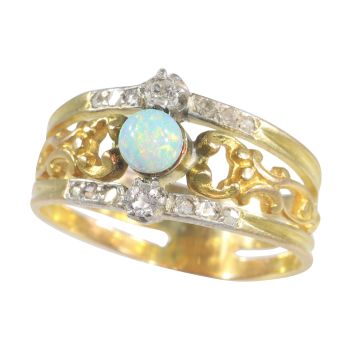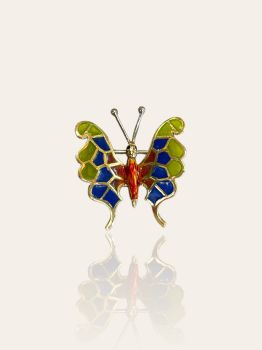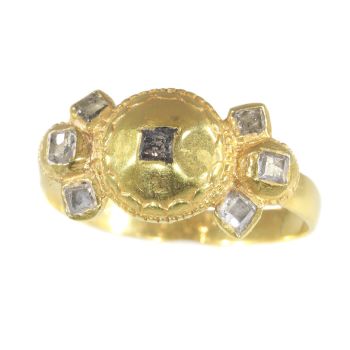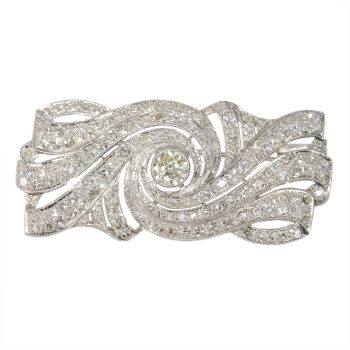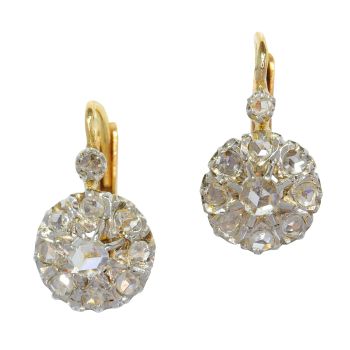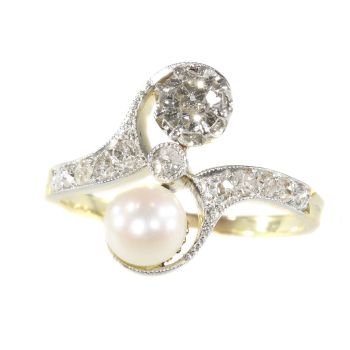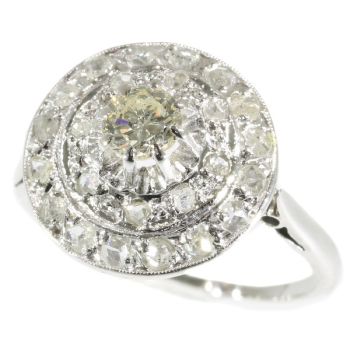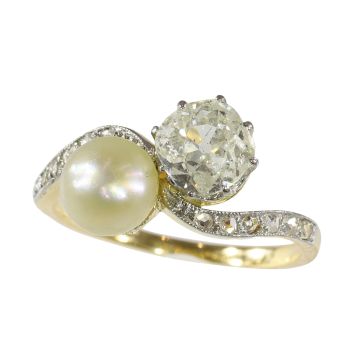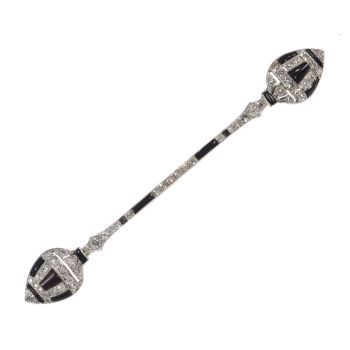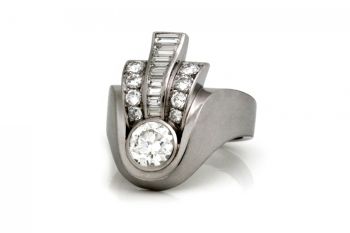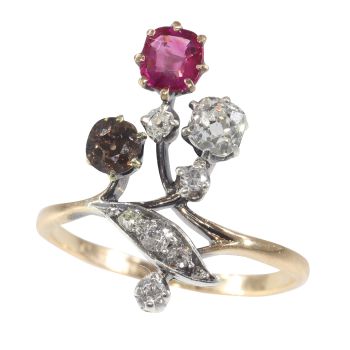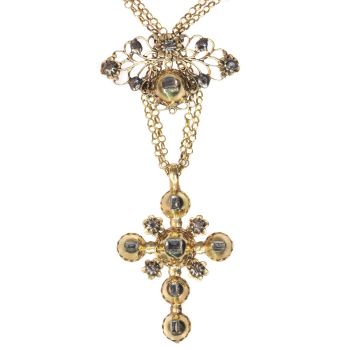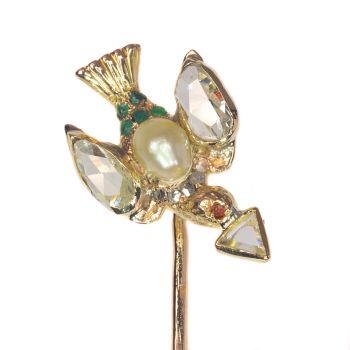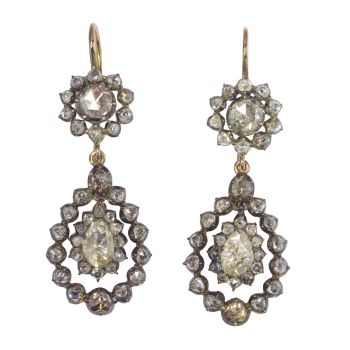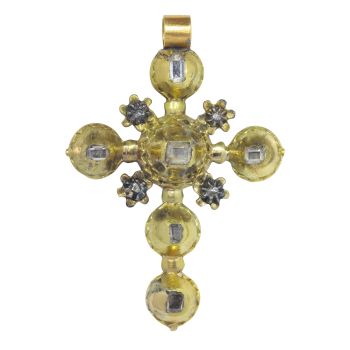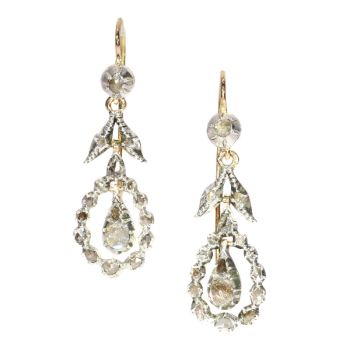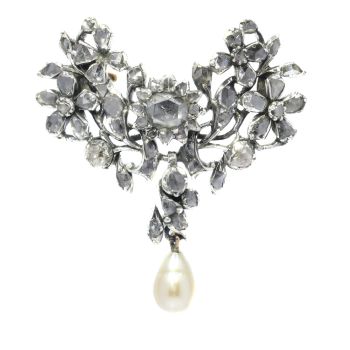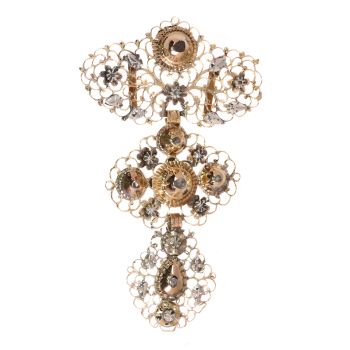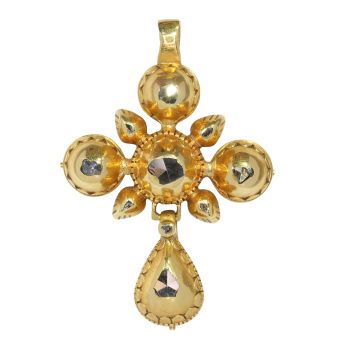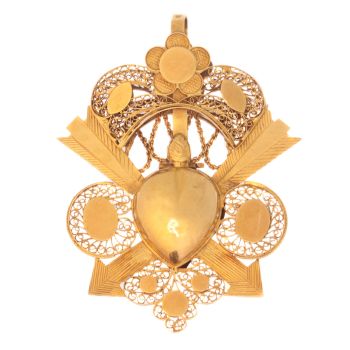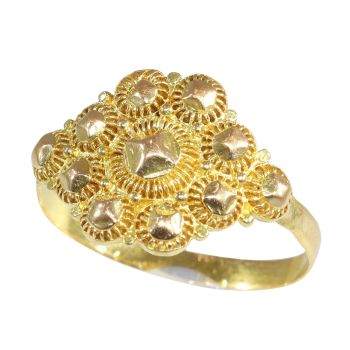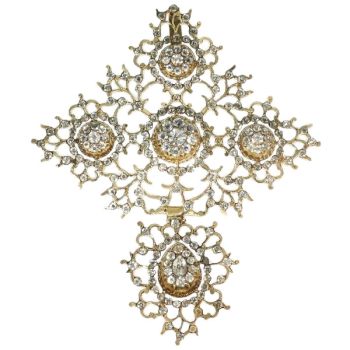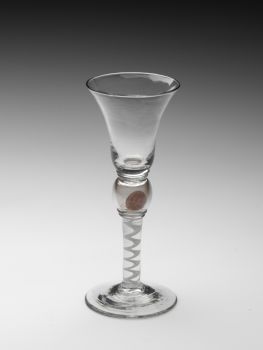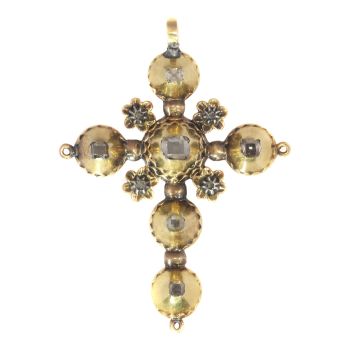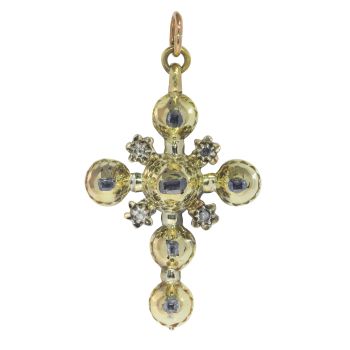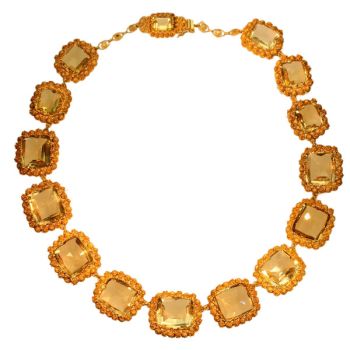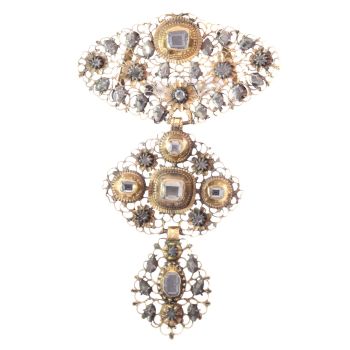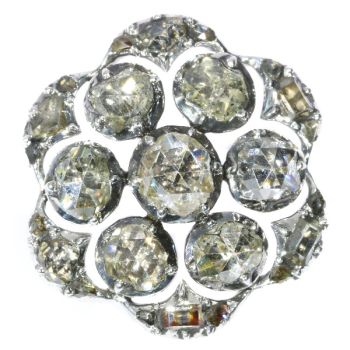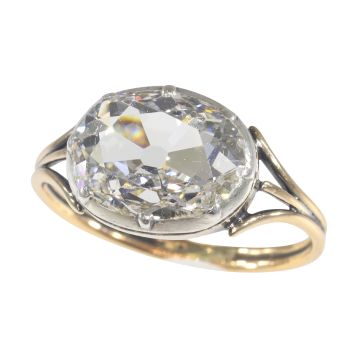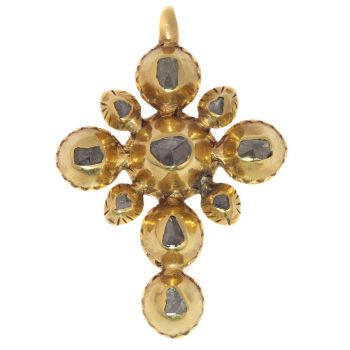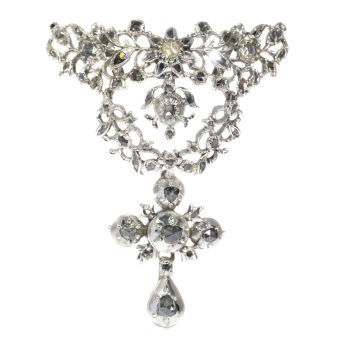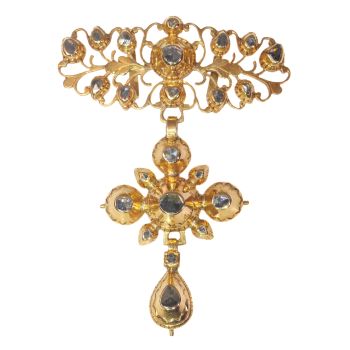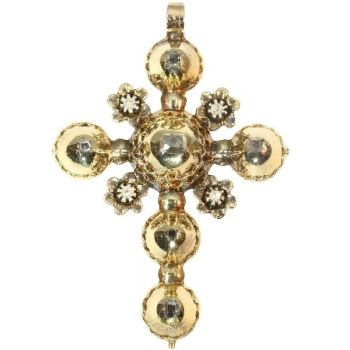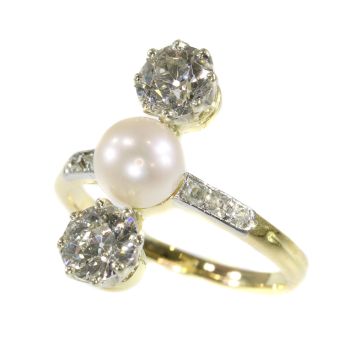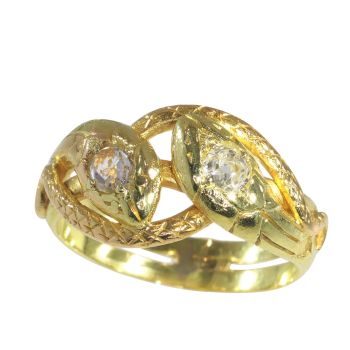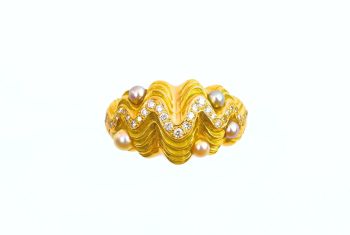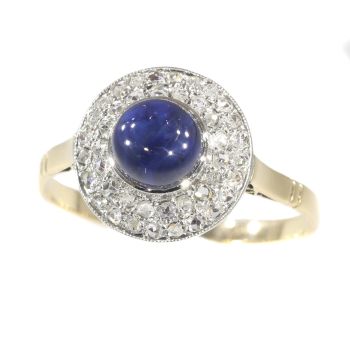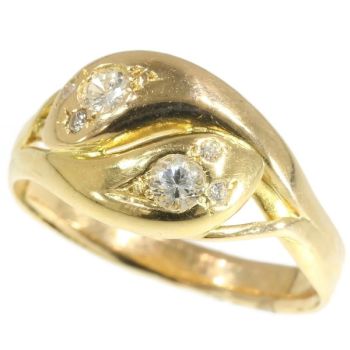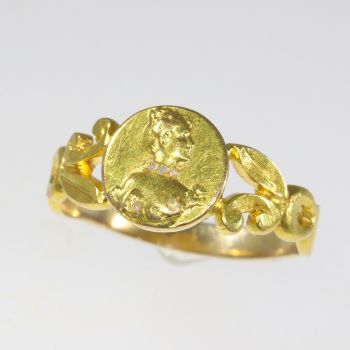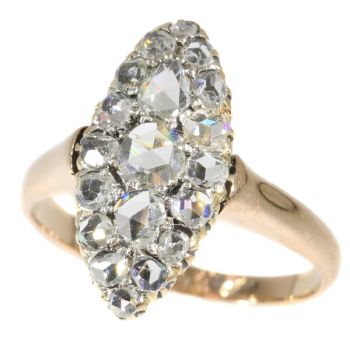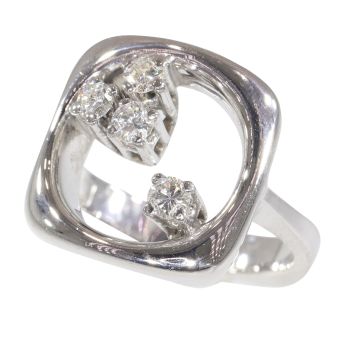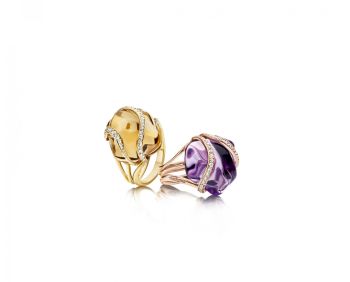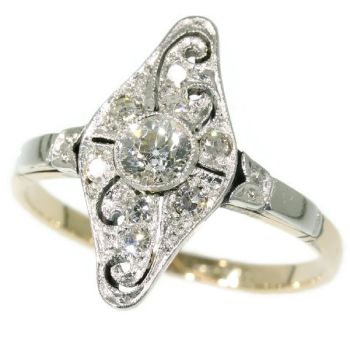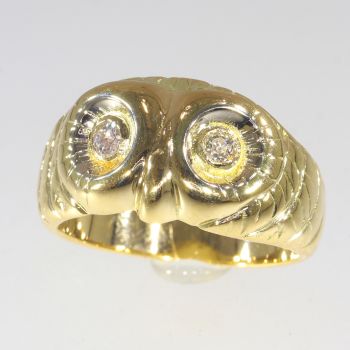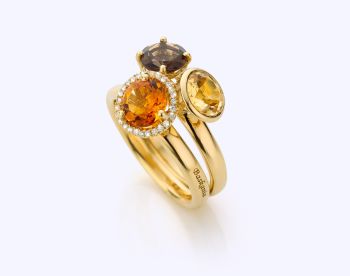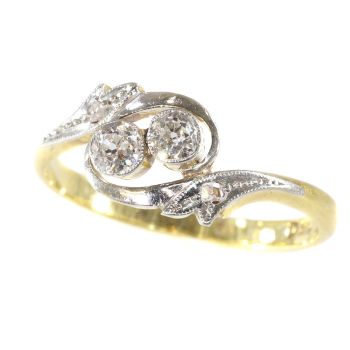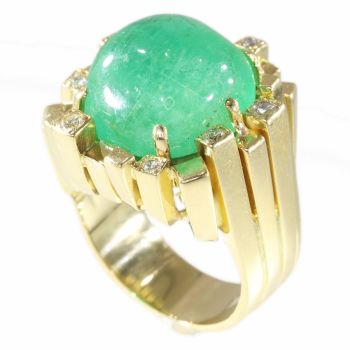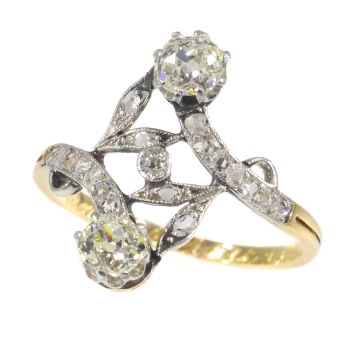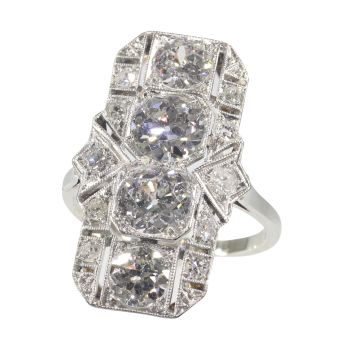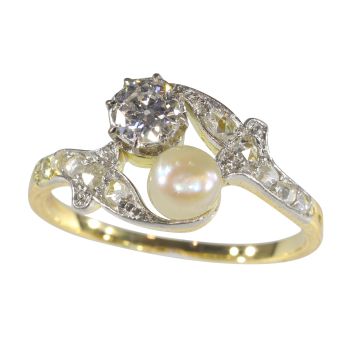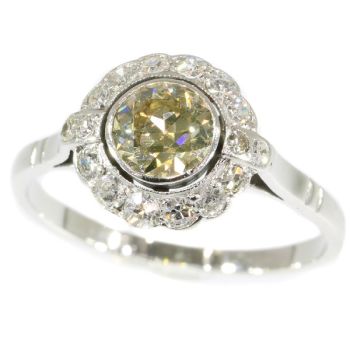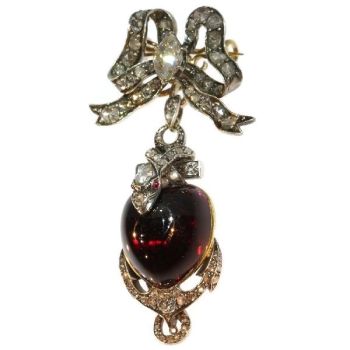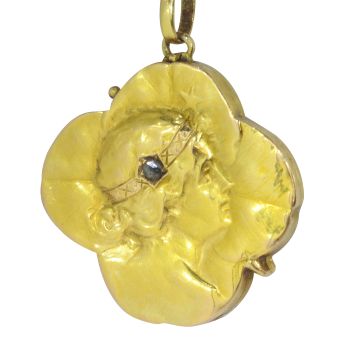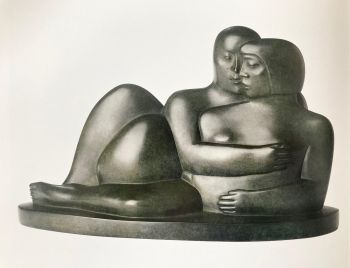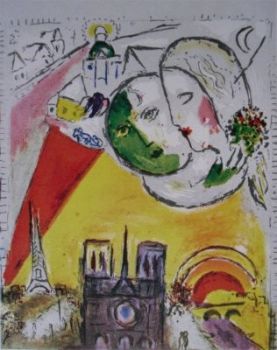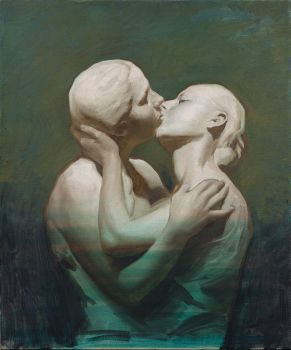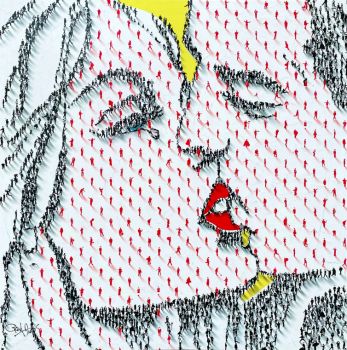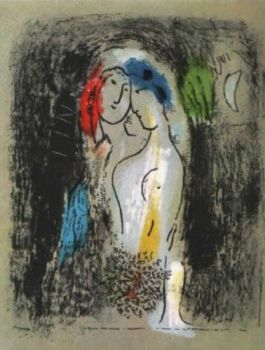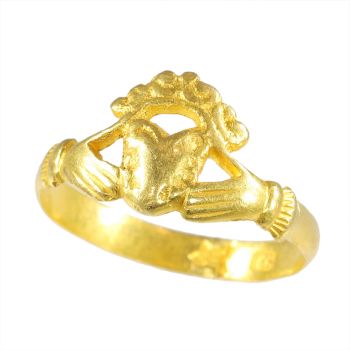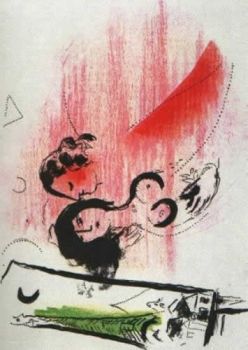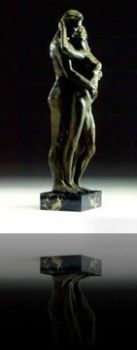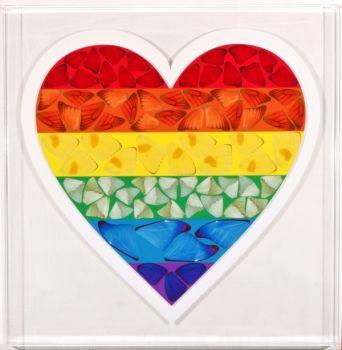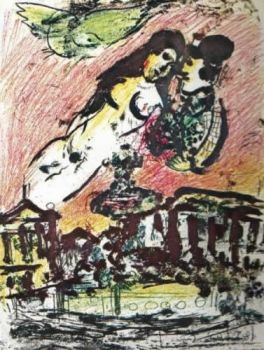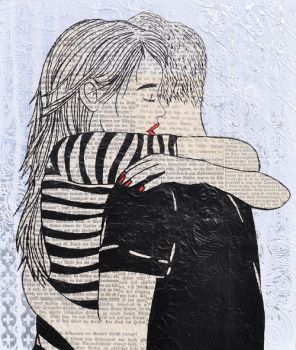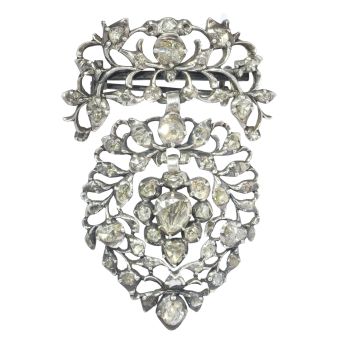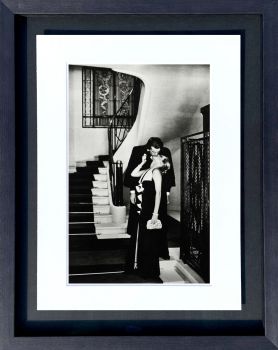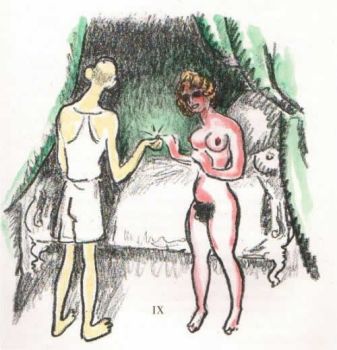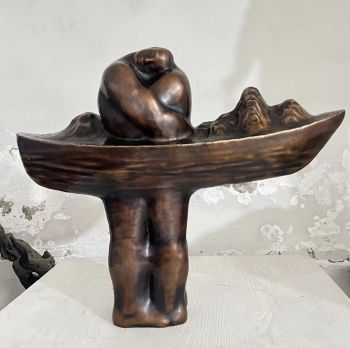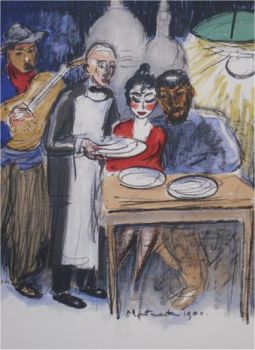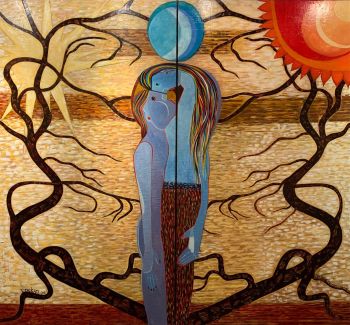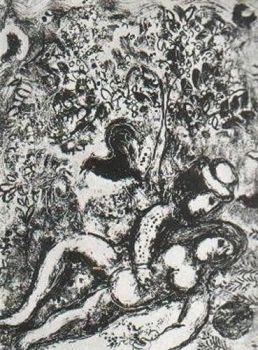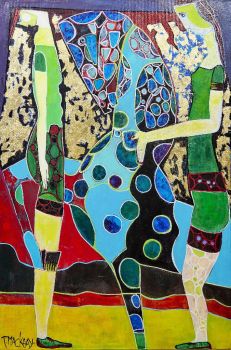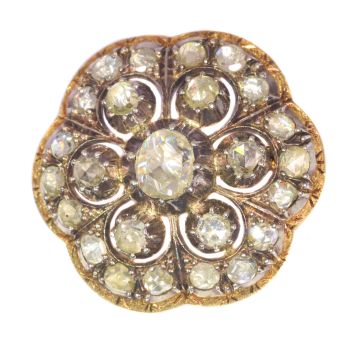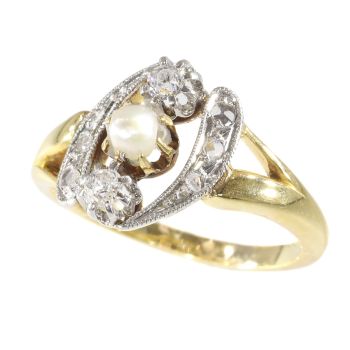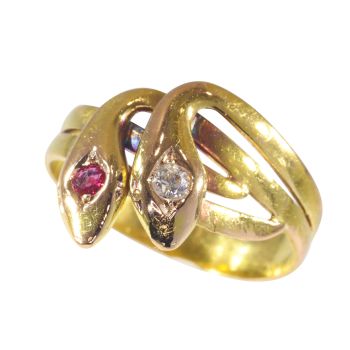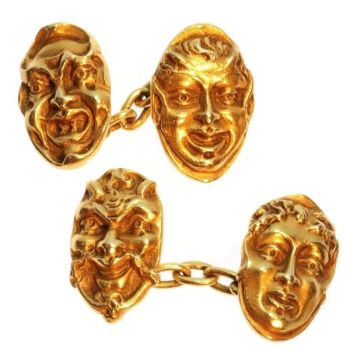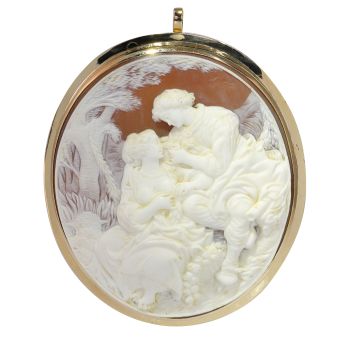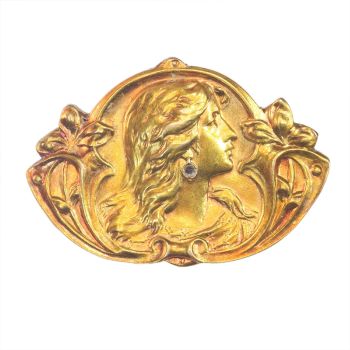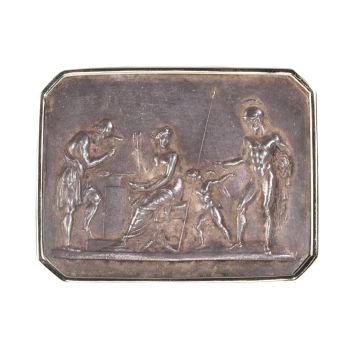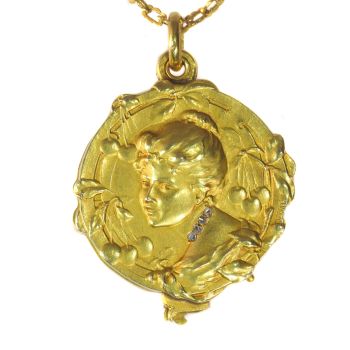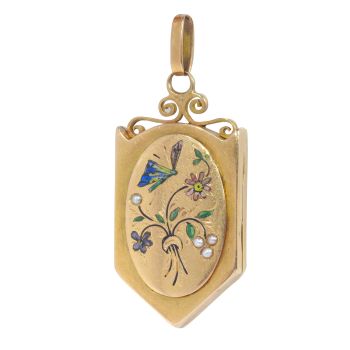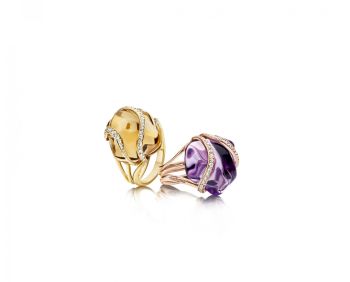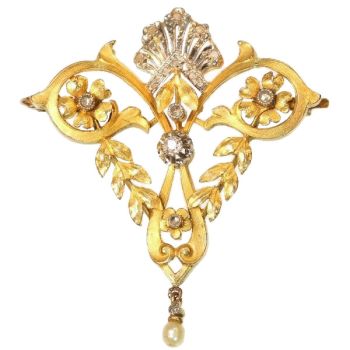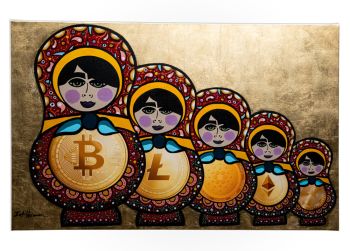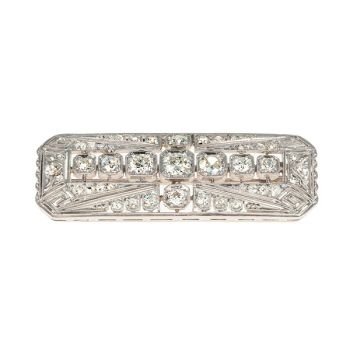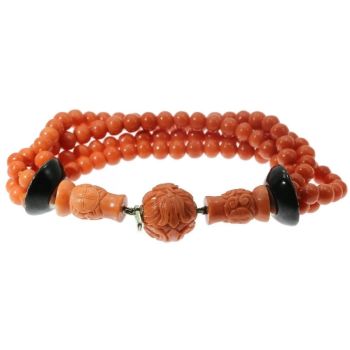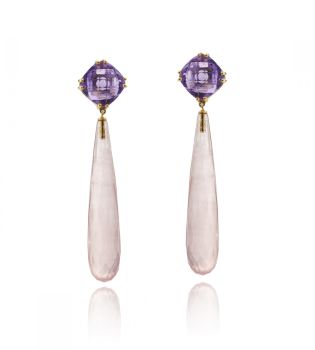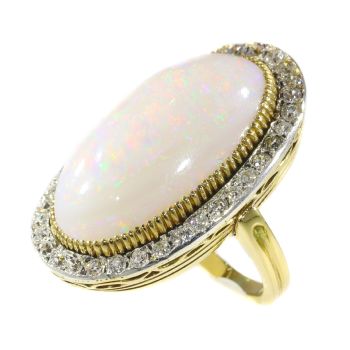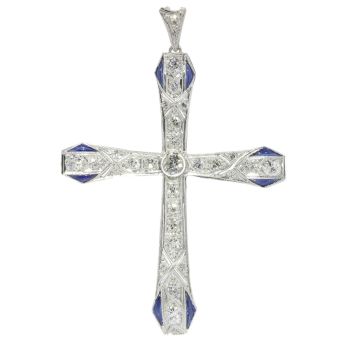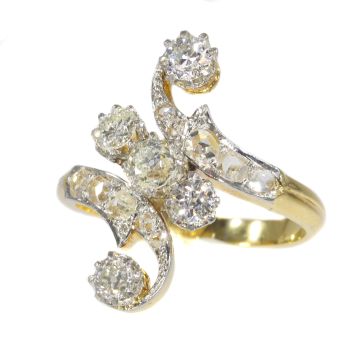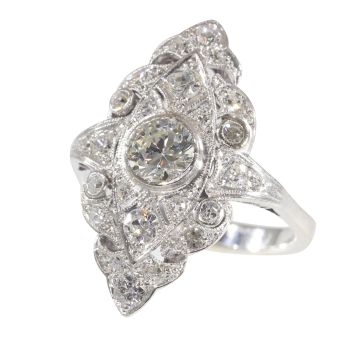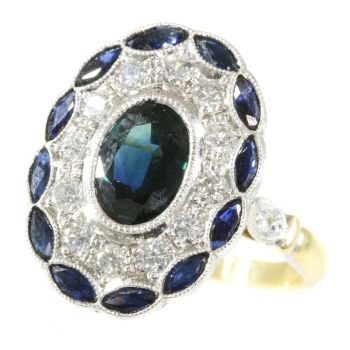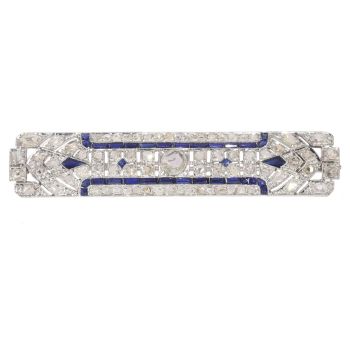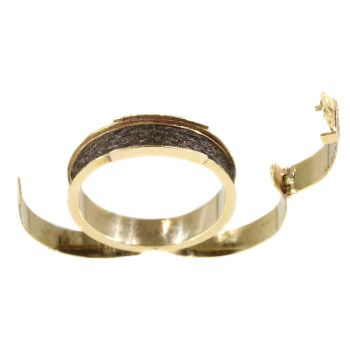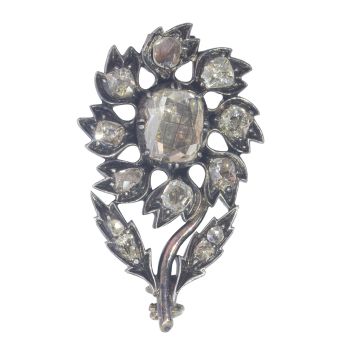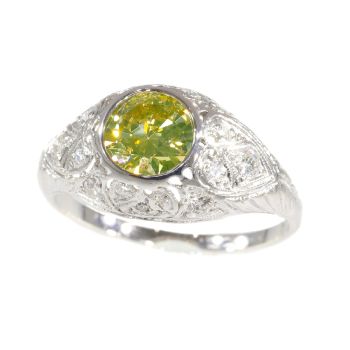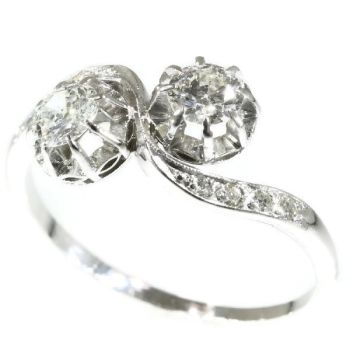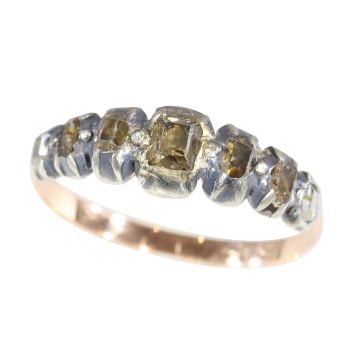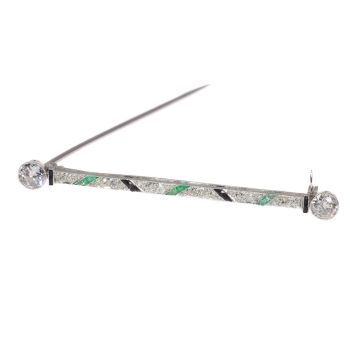Georgian 18K Yellow Gold Love Wedding Band, Circa 1780 – A Timeless Symbol of Romance 1780
Artista Desconocido
Oro
€ 1.950
Adin Fine Antique Jewellery
- Sobre la obra de arte
This remarkable Georgian love wedding band, dating to circa 1780, offers a rare opportunity to wear a piece of history. Crafted in 18K yellow gold, its design features two fused hearts, symbolising enduring love. The ring’s captivating age and timelessbeauty make it incredibly cool to wear, allowing its owner to connect with the romance and craftsmanship of a bygone era. A unique treasure, it carries not only the symbol of devotion but also the fascinating story of centuries past, embodying bothhistory and sentiment in one elegant piece.
Antique jewelry object group
ring, wedding band
Condition
very good condition
more info on our condition scale
Country of origin
Netherlands
Style
Georgian - Georgian style is the name given in most English-speaking countries to the set of styles current between 1720 and 1840. It is eponymous for the first four British monarchs of the House of Hanover—George I of Great Britain, George II of GreatBritain, George III of the United Kingdom, and George IV of the United Kingdom—who reigned in continuous succession from August 1714 to June 1830.
See also: Georgian
more info on styles
Style specifics
A style that borrowed style specifics from the ancient Greeks and the Roman empire (hence the name of the style: Empire). The empire period represents the second part of the Neo-Classical style, and shows a strong French influence. The style originatedin the desire of Napoleon to revive the luxurious majesty of imperial Rome. Traditional classical motifs, already seen in the reign of Louis XVI, were supplemented by symbols of imperial grandeur- the emperor's monogram and his emblem, the bee;representations of military trophies; and after the successful campaigns in Egypt, Egyptian motifs. If we had to characterize this style briefly, we could focus on two elementary concepts: massiveness and symmetry.
Period
ca. 1780
Events & facts of this era, poetry of this era, fashion of this era.
Source of inspiration
Love and romance
Theme
Two fused hearts The heart has long been used as a symbol to refer to the spiritual, emotional, moral, and in the past also intellectual core of a human being. As the heart was once widely believed to be the seat of the human mind, the word heart continues to be usedpoetically to refer to the soul, and stylized depictions of hearts are extremely prevalent symbols representing love. (from: Wikipedia)
Material 18K
yellow gold (touchstone tested)
more info on precious metals
Hallmarks
On the underside of the exterior, there is a stamp that is difficult to discern: two V's with something in between, shaped somewhat like a structure with a pointed centre and flanking forms that resemble castle turrets. When viewed upside down, itresembles the upper half of a stamp. On the top side, there is a small lion's head facing left, dating from 1814 onwards.
It is due to this illegible stamp that we suspect the ring is older than indicated by the lion's head mark. The shape and execution of this unreadable stamp clearly date from before 1800.
more info on hallmarks
Dimensions
band width top of ring 0,75 cm (0,30 inch)
see picture with a ruler in millimeters and inches
Weight
1,10 gram (0,71 dwt)
Ring size Continental EU: 65 & 20¾ , Size USA: 11¼ , Size UK: W
Resizing
Free resizing (a charge applies only for extreme adjustments). However, we must also consider whether resizing is feasible without removing the (illegible) stamp located directly on the underside of the shank.
more info on ring sizes
Adin Reference Nº
24121-0305
Copyright photography
Adin, fine antique jewellery
Additional information
our latest acquisitions
jewelry glossary
wall of fame
visit us in Antwerp
subscribe to our mailinglist
- Sobre el artista
Puede suceder que un artista o creador sea desconocido.
Algunas obras no deben determinarse por quién está hecho o por (un grupo de) artesanos. Algunos ejemplos son estatuas de la Antigüedad, muebles, espejos o firmas que no son claras o legibles, pero también algunas obras no están firmadas en absoluto.
También puedes encontrar la siguiente descripción:
•"Atribuido a …." En su opinión, probablemente una obra del artista, al menos en parte.
•“Estudio de….” o “Taller de” En su opinión, una obra ejecutada en el estudio o taller del artista, posiblemente bajo su supervisión
•“Círculo de…” En su opinión, una obra del período del artista que muestra su influencia, estrechamente asociado con el artista pero no necesariamente su alumno.
•"Estilo de …." o “Seguidor de…”. En su opinión, una obra ejecutada al estilo del artista pero no necesariamente por un alumno; puede ser contemporáneo o casi contemporáneo
•"Manera de …." En su opinión una obra al estilo del artista pero de fecha posterior
•"Después …." En su opinión, una copia (de cualquier fecha) de una obra del artista
•“Firmado…”, “Fechado…” o “Inscrito” En su opinión, la obra ha sido firmada/fechada/inscrita por el artista. La adición de un signo de interrogación indica un elemento de duda.
•“Con firma…”, “Con fecha…”, “Con inscripción…” o “Lleva firma/fecha/inscripción” en su opinión la firma/fecha/inscripción ha sido añadida por alguien que no es el artista
¿Está interesado en comprar esta obra de arte?
Related artworks
- 1 - 4 / 12
Artista Desconocido
Un cáliz de monedas inglés-holandés1738
Precio a consultarPeter Korf de Gidts - Antiquairs
1 - 4 / 24- 1 - 4 / 24
- 1 - 4 / 24
- 1 - 4 / 24
- 1 - 4 / 12








